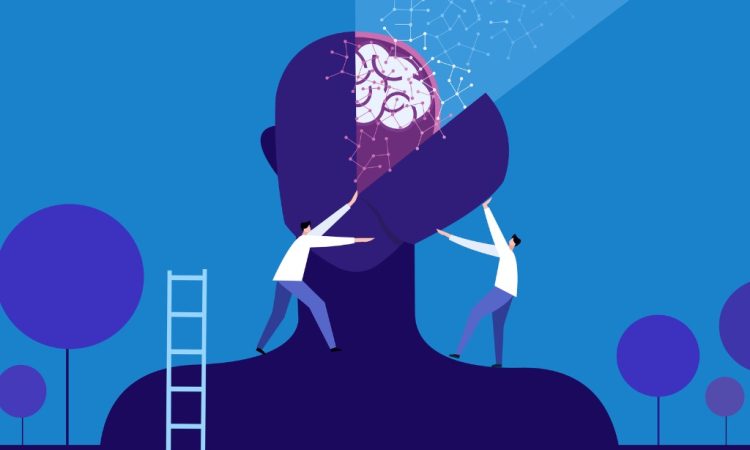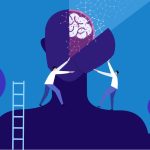|
Getting your Trinity Audio player ready...
|
As a transdisciplinary field, career development is enriched by insights from different disciplines. These include psychology, sociology, labour market economics, and education. There is nothing wrong in principle with adding a biological perspective into the mix; indeed the ‘biophobia’ sometimes evident in the social sciences is unhelpful. Nonetheless, we have some reservations about applying neuroscience to career counselling.
Patrick Phillips’ recent article in the Canadian Journal of Career Development, “Applying neuro-informed career focused counselling: A single case study analysis,” makes the case in favour. He draws on an example of career counselling for an individual who has been bullied at work, suggesting possible neuro-biological impacts of the intervention. Phillips makes several points we would agree with. Issues of mental health do arise in career counselling, and there are reasons to believe that the well-being outcomes of career guidance are positive. Helping people manage work-related stress could involve raising awareness about what typically happens inside the body when we are under pressure. But we disagree with the main thrust of the argument – that neuroscience concepts can (unproblematically) inform career counselling, and the claim that career counsellors are ‘applied neuroscientists’
The appeal of neuroscience is clear: it seems to suggest a deeper, more fundamental truth about human nature can be accessed by drilling down to a molecular level in the brain. From these insights, perhaps greater wisdom about how to live our lives (and careers) can be accessed. But this ignores the importance of levels of analysis. Neuroscience offers a window into the body: the person is subdivided into nerve cells, neurotransmitters and so on. What is happening inside the person’s nervous system can be understood at three levels:
- A cellular level;
- In terms of local structures in the brain; or
- At a whole-brain level.
While there have been advances in using neural networks as a way of understanding how these levels interact, substantial challenges remain in making inferences across these levels. There are challenges in making inferences from animal or computer-based models to humans. There are even more challenges in connecting brain activity and behaviour in clinical neuroscience. If we make claims about how what happens in the brain translates into behaviour in work and education – how the person interacts with their social environment – then there are huge leaps of logic required.
It is at an interpersonal level that Phillips argues for the use of narrative career counselling – an approach that is fashionable across a range of theoretical perspectives. But there is no published empirical evidence (that we are aware of) demonstrating a physiological impact of narrative career counselling, or to support the claim that a trusting helping relationship facilitates neuroplasticity (the brain’s ability to change/adapt) in this context. The recommended practice is not robustly linked to the neuroscience evidence. Claims about what is going on in an individual’s body cannot be safely made – whether they are a single case study or a client/service user. In the absence of physiological measurement, it is conjecture.
It is true there has been some interest in links between coaching and neuroscience. Four articles in The Coaching Psychologist (Volume 11,1, 2015) explore this, but these perspectives are predominantly speculative, and the empirical evidence for coaching causing physiological changes is thin on the ground.
In one sense, neuroplasticity is a ubiquitous process in the brain. A conversation with a plumber or a traffic cop might have as much neurological impact as an encounter with a career counsellor. But we cannot currently detect changes after one-off social encounters. Rather, it is repeated learning activities that have been linked to physical effects – for instance, changes in grey matter volume associated with learning to juggle or changes in white matter connectivity after short-term repetition in learning a video game.
Crucially, career counsellors are not applied neuroscientists. Professional training in career development does not enable practitioners to understand or assess arguments based on neuroscience. The profession is poorly equipped to distinguish credible claims from pseudoscience. It is beyond the boundaries of most practitioners’ competence.
Appeals to neuroscience lend a spurious authority to recommendations for practice. Neuroscience does not speak with one voice; it is an umbrella term for a number of sub-disciplines with biological, psychological and computational perspectives that may sometimes be contested. It tends to put a spotlight on individual biology (or pathology), when we should be looking at social, economic, or political considerations: in the case of bullying (as used in Phillips’ article), the workplace cultures that enable it.
Whilst neuroscience may inspire ideas about career learning, it is not advisable to borrow its concepts uncritically. We should seek educational or behavioural evidence before we apply those ideas to career development practice.




